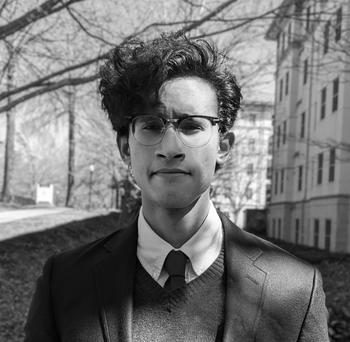Democratic politicians, liberal activists get graduation speaking gigs
Several 2022 commencement speakers are Democratic politicians or progressive activists.
For many academic institutions, this will be the first in-person ceremony since spring 2019.
As spring graduation nears for the class of 2022, colleges and universities across the country are beginning to announce commencement speakers. Many of these speakers are Democratic politicians or social justice activists.
At Endicott College, former Boston mayor and current Secretary of Labor Marty Walsh will be delivering the institution’s commencement address.
Walsh gained notoriety for declaring Boston a sanctuary city and classifying racism as a public health crisis. He also set aside city funds for organizations operated by or for racial minorities.
Isabel Wilkerson is slated to speak at Northwestern University. The Caste author has argued that the United States operates according to a racial caste system.
Taylor Swift will be delivering New York University’s commencement address and receiving an honorary doctorate from the institution. Swift, who had previously avoided publicly voicing her political opinions, turned to liberal activism during Donald Trump’s tenure as president.
[RELATED: EXCLUSIVE: No conservatives have been UC Berkeley commencement speakers in past 10 years]
Swift has lent support to March For Our Lives, an anti-gun nonprofit that has advocated for a national firearms registry, called for a ban on many semi-automatic firearms, and claims that guns are “how white supremacy and patriarchy survive.”
She also endorsed the Equality Act, which would have enshrined sexual orientation and gender identity as protected categories within American civil rights law.
In February, Campus Reform reported that New York University offers a music class that uses Swift’s career to analyze Whiteness and “American nationalism.”
Connie Schultz, a USA Today columnist and wife of Democratic Senator Sherod Brown, is another liberal activist who has been scheduled to give a commencement address at Denison University.
Headlines of her opinion piece include things like “How potholders got me thinking about racism, my father and the whitewashing of US history,” “Why aren’t we having nightmares about the next Jan. 6?,” and “When Texas lawmakers tell you they hate women, believe them. I do.”
Other speakers this year include Attorney General Merrick Garland, US Ambassador to the United Nations Linda Thomas-Greenfield, and New Zealand Prime Minister Jacinda Arden.
Thomas-Greenfield will speak at the University of Wisconsin-Madison and Arden will speak at Harvard University. In a move that includes students affected by COVID-19 restrictions, Garland will address the Harvard classes of 2020 and 2021 three days after Arden.
Arden, who has championed what some have described as among the strictest COVID-19 restrictions in the world, has led the movement to ban most semi-automatic firearms in New Zealand.
But perhaps the most well-known speaker this year is National Institute of Allergy and Infectious Diseases (NIAID) Director and Chief Medical Advisor to the President Anthony Fauci.
Fauci will be addressing graduates at both the University of Michigan and speaking at Princeton University’s Class Day, which is a ceremony for the university’s graduating class that takes place the day before graduation.
“Listening to a leader who has been at the forefront of combatting the pandemic will be a cathartic moment for us given all we have been through,” Santiago Gurian, president of the Princeton class of 2022, stated, according to the Princeton website.
To date, Campus Reform has only been able to identify a relatively small number of conservative commencement speakers.
These speakers are Condoleezza Rice, Tim Tebow, and Mike Pence. They will be speaking at Southern Utah University, King’s Academy, and Columbia International University, respectively.
For many academic institutions, this will be the first in-person ceremony since Spring 2019.
Every institution and individual named above has been reached for comment by Campus Reform; this article will be updated accordingly.

